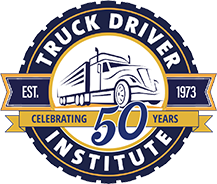Where Can I Begin My Class A CDL Training?
Are you ready to get started? TDI has 10 campuses conveniently located around the Southeast and the Midwest. Many of our campuses include comfortable lodging for students who don’t live in the area. That way, you don’t have to tackle a long commute every day during your time with us.
Our truck driving school locations are in Atlanta, Birmingham, Gulfport, Indianapolis, Nashville, Orlando, Pensacola, Columbia, South Bend, and Tupelo. Contact the nearest to you to find out what you need to do to begin your Class A CDL training at TDI.
TDI takes great pride in the difference we make in people’s lives every day. With proper Class A CDL training, you can confidently enter a new and lucrative career no matter what your background is. With TDI CDL training, you’re automatically qualified to work with companies that provide competitive salaries, retirement plans, and healthcare benefits.
Whether you have a poor driving record, criminal convictions, or even a DUI, a CDL is the perfect way to get back on track.
Need financial aid? Apply today to see if you qualify for a scholarship, grant, or military*/GI Bill ®. It’s also common for carriers to reimburse a student’s tuition to help pay for their training if they qualify, but this is specific from carrier to carrier and individual results may vary.
Now that you know how easy it is to receive life-changing Class A CDL training, take your first steps and contact TDI today.
To inquire, get started here, or give us a call at 800-848-7364.To stay up-to-date with everything CDL or learn more about TDI, check our blog out to find out how we can help you advance your career as soon as possible.

